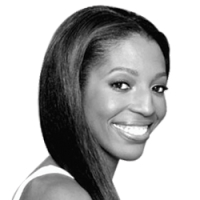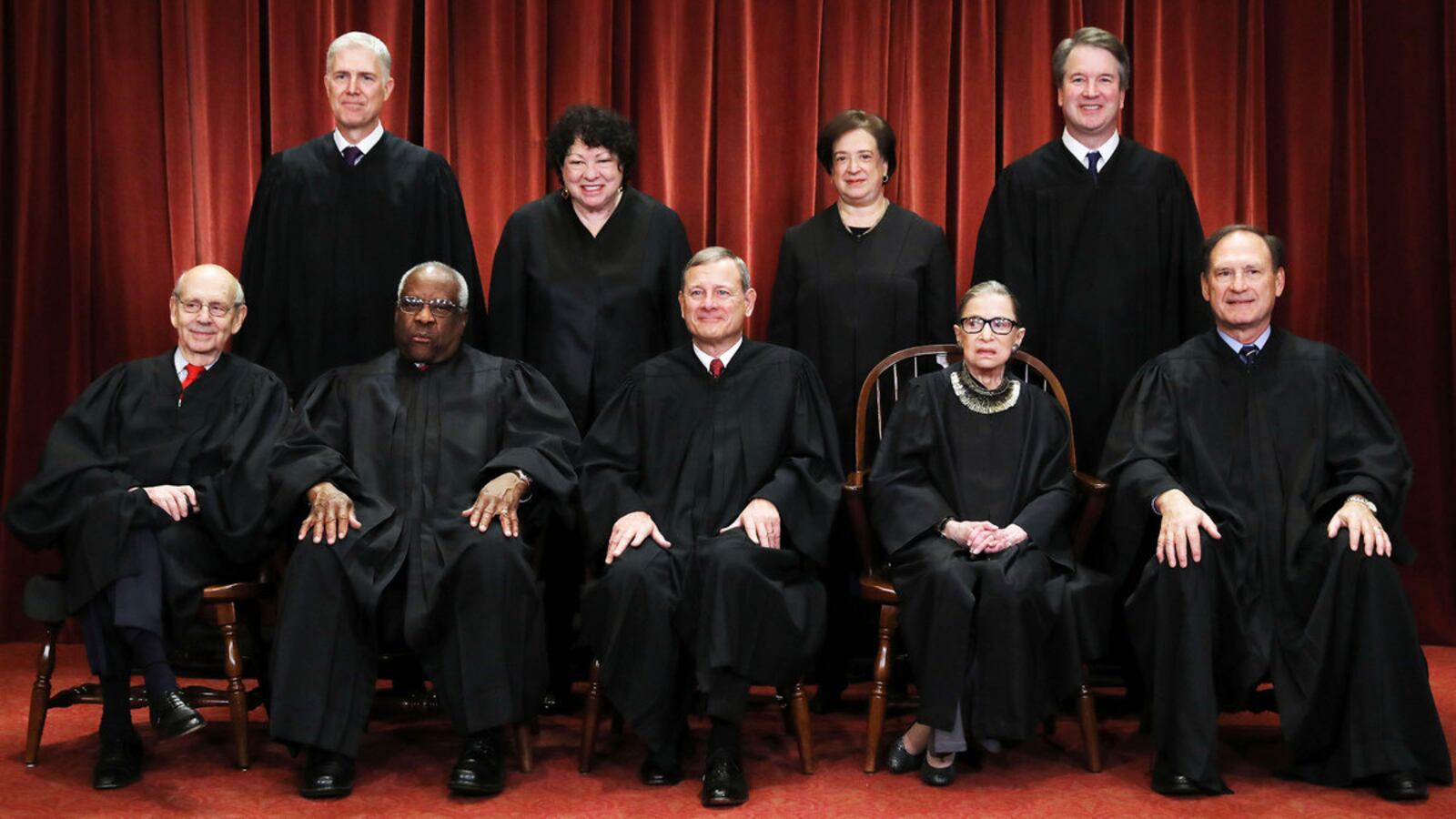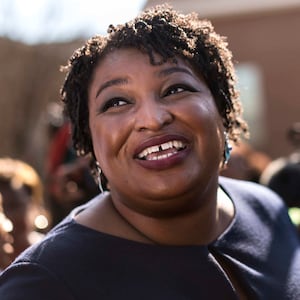When I read that a number of black women I admire published a letter encouraging Joe Biden to select a black woman as his vice presidential candidate, I realized just how little I care whether he does or not. Because while it would be historic and symbolically inspiring, I think Biden could make a move that would be far more important, one that he already committed to making during a debate with Bernie Sanders—he must commit to nominating one to the Supreme Court should he be elected.
I can already feel the eye-rolling begin. Based on the fact that Biden owes his nomination to black women voters he should feel so indebted to them that arguably he should not only select a black female running mate and nominate one to the Supreme Court, but perhaps fill his entire cabinet with black women. But we know that he won’t. It would be great if we lived in a society in which he could, racial and gender politics be damned.
Yet in the same way that we all knew Barack Obama wasn’t going to select another black person to be his vice presidential nominee because of the complicated optics, I’m not alone in worrying if Biden selects a black woman as his running mate he won’t have the political capital to nominate one for the role that matters so much more: Supreme Court justice.
The vice president fundamentally serves a ceremonial role with only two real levers of power (if something unfortunate happens to the president or she needs to break a tie in the Senate). The Supreme Court, however, bestows a lifetime of power. It has remained a source of ongoing frustration for me, and other black women like me who care deeply about justice, that we are not represented on the highest court of the land.
Any illusion that the racial and gender identity of jurists doesn’t impact their decisions has been challenged by data, and by plenty of disturbing anecdotal evidence. A troubling 2016 study found that white federal judges are four times more likely to dismiss race discrimination cases and that they are half as likely as black judges to rule in favor of those alleging race-based workplace harassment.
The stakes are equally high when it comes to gender. In my documentary Reversing Roe, Kitty Kolbert, who litigated Planned Parenthood v. Casey before the Supreme Court in 1992, marveled at how much the mere addition of more women justices transformed oral arguments during later reproductive rights cases. Similarly, during a case regarding the strip search of a 13-year-old girl, Justice Ruth Bader Ginsburg is credited with swaying her male colleagues by explaining that such an invasion is not similar to boys changing before each other in a locker room.
Last year, when a New Jersey judge advocated for leniency for a teenager who admitted committing rape because he was “from a good family,” it brought up echoes of the Brock Turner case from just a few years before, when Turner was convicted of felony sexual assault but ended up serving only three months in jail. It seems that for some justices, rape is synonymous with “boys will be boys.”
That could be because most judges were boys themselves. An analysis by the Center for American Progress found that as of last year, “80 percent of all the sitting judges on the federal bench were white and 73 percent were male.” Those numbers should help answer the question so many seem to ask when a rape survivor doesn’t come forward immediately. Why bother if a Brett Kavanaugh is going to be deciding what kind of justice you receive?
Of course, judicial bias can’t simply be unpacked along racial or gender lines. Plenty of black Americans would tell you that Justice Clarence Thomas’ perspective on civil rights does not reflect their own. That could be because studies confirm that politics do impact the judiciary. Republican-appointed justices tend to give black defendants longer sentences. Another found that the rulings of conservative male jurists tended to evolve to favor women if those judges raise daughters, proving diversity on the bench, in many forms, matters.
The Supreme Court’s lone Latina justice, Sonia Sotomayor, said during a 2016 talk: "I, for one, do think there is a disadvantage from having (five) Catholics, three Jews, everyone from an Ivy League school.” (This was the rare issue on which she and her deceased colleague Antonin Scalia agreed, with him also decrying the court’s lack of Protestants and plethora of Ivy league graduates.) Sotomayor’s youth spent in a Bronx housing project clearly shaped her passionate dissent in Utah v. Strieff, a case regarding illegal searches by the police. Like Sotomayor, black women are also more likely to come from communities where many fear the police but few consider the Ivy League within reach. (It’s worth noting that seven in 10 black Americans identify as Protestants.)
Which is why I have been frustrated by the lack of emphasis on diversifying our courts. While President Obama made great strides nominating the most diverse slate of jurists in history, I and others knew it was a long shot for the first black president to nominate black jurists to the nation’s highest court. With the COVID-19 pandemic laying bare the startling divide that still remains regarding class, as well as race, the lack of diversity in our most important power structures weighs on me greatly.
For that reason, I want to see the voices of the underrepresented amplified where we need them most. And that means the Supreme Court. I’d also like to see those who claim to care about issues affecting black women focus their efforts pressuring Biden to make decisions that have real impact on us and are not merely symbolic.
The vice presidency seems like a great gig for someone who likes to travel, do ribbon-cuttings, and play defense when the boss screws up. (Exhibit A: Mike Pence the last two months.) Considering only five vice presidents in history have successfully used it as a springboard to the presidency, I actually wouldn’t wish the vice presidency on someone I consider a truly gifted politician, like Stacey Abrams. I believe she will be president one day. But before then, I would like to see a black woman on the Supreme Court.
And considering what Joe Biden owes black women—not just for his nomination, not just for his treatment of Anita Hill, and not just for being his rock of support every time he puts his foot in his mouth or faces criticism or accusations—he should offer more than just four years of secondary power. He should offer black women a seat on the bench that offers a lifetime of power.







